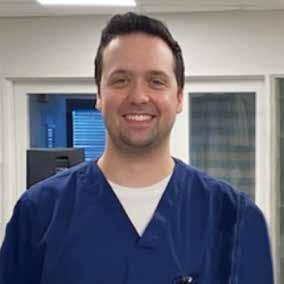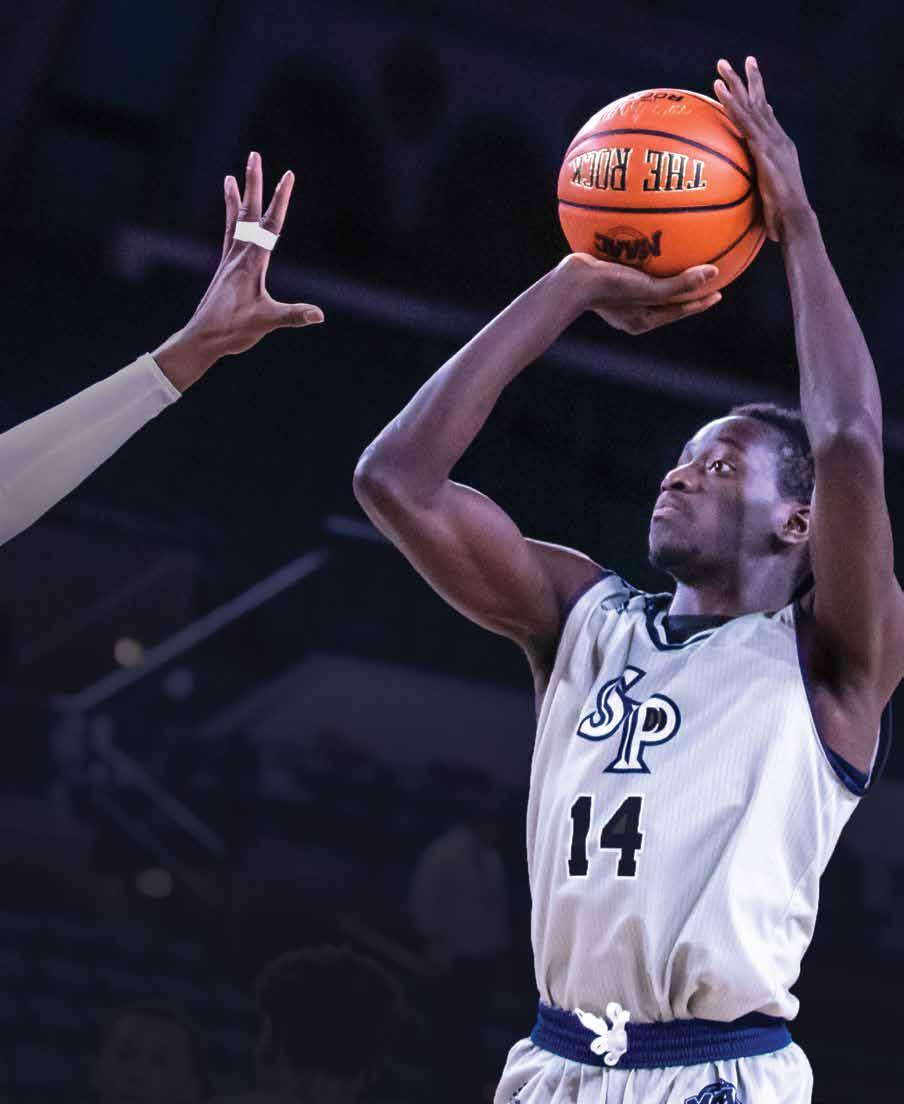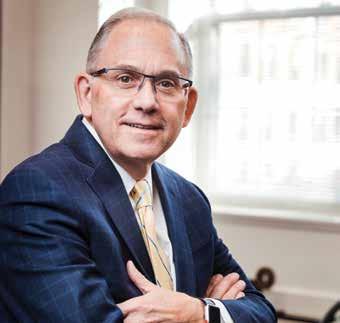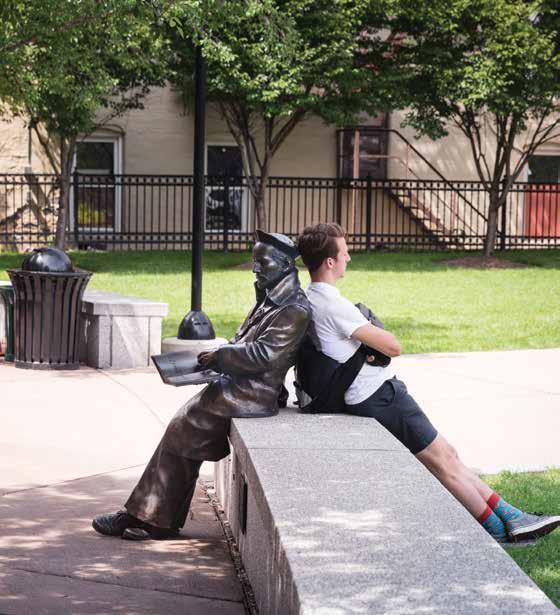AD
Finem
It’s the Right Thing To Do Before the coronavirus, COVID-19 pandemic, Kevin
in Philadelphia, he took a two-year break before trans-
O’Neill, R.N. ’16 could anticipate the daily challenges
ferring to the University. O’Neill had an interest in sci-
and rewards of caring for post-operative open heart sur-
ence. His mother, Professor and Chair of the Philosophy
gery patients in the Intensive Care Unit (ICU) at Newark
Department Lisa O’Neill Sanders, Ph.D., suggested he
Beth Israel Medical Center. “Controlled chaos,”
look into the School of Nursing. O’Neill gave it a shot. “The program was very rigorous,”
is how O’Neill, a critical care nurse, de-
he recalled. “But as I went through, I
scribes the pace of the unit. “The po-
was able to see myself doing this
tential for patient complications
long term. After the first year, it
is certainly there, but there’s a
was, ‘OK, keep going.’”
certain rhythm to it that you
Shortly after graduation
fall into and get comfort-
from Saint Peter’s, O’Neill
able with.”
became a float pool nurse
That all changed in March as the number of
at Newark Beth Israel,
COVID-19 cases began to
which is run by RWJBarn-
surge and the hospital
abas Health, a network
expanded its capacity to
of independent healthcare providers in New
treat critically ill COVID-19
Jersey. The 18 months he
patients. Four years after
spent in a range of medical
earning his B.S.N. from Saint
departments proved excel-
Peter’s University, O’Neill was
lent preparation for the current
on the front lines of care.
healthcare crisis. “I was taking care
“The ICUs began to fill up and
of different kinds of patients,” he said.
they remained filled,” O’Neill said. “For myself and the other nurses on the floor it was a huge change in the type of patient that we were seeing.” Adjusting to those changes seemed insurmountable at times. Though O’Neill got up to speed quickly on the clinical
O’Neill is fortunate that his schedule remains manageable, but the work remains mentally exhausting. He’s seen some patients recover. “It’s a relief,” he said.
side of COVID-19, the relentless nature of the disease
“It’s a huge sigh of relief. We got one. It’s encouraging,
and its high mortality rate has been emotionally over-
but it’s also a reminder of how lucky that one person is.”
whelming. The critical care nurse is used to seeing good
Asked what he draws on to keep going, O’Neill re-
outcomes. “Cardiac patients get surgery, they get better
sponded, “I hate the cliché of, ‘This is what I signed up
and go home. There’s a lot of satisfaction in seeing your
for.’ This is not what I had in mind when I entered the
patients get better and live their lives. That is not hap-
field. But that doesn’t change the fact that the commu-
pening now. People are really sick and need a lot
nity relies on me and others to do the job we said we
of care.”
would do. There are people out there who need help. I’m
When he first arrived at Saint Peter’s in 2014, O’Neill hadn’t yet landed on a major. After two years of college
16
“It taught me to be flexible and to roll with the punches.”
Spring 2020
not sick, but there are people who are. I can provide care for them. It’s the right thing to do.”





